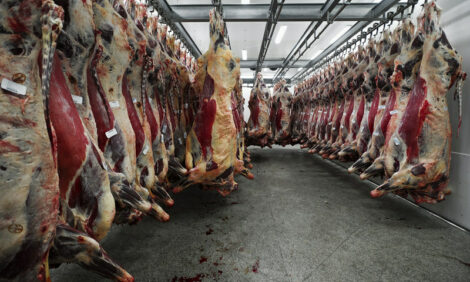



Need for Balance on Climate Change Targets
NEW ZEALAND - New Zealand’s post-2012 climate change policies, including any 2020 emissions target, must balance environmental and financial implications, says Meat & Wool New Zealand Chairman, Mike Petersen.“Recent announcements from the Government indicate emissions trading is here to stay and will include agricultural emissions. Negotiations around the next international climate change agreement for post-2012 are underway, and the Government has kicked-off public consultation on a 2020 emissions target.
“These issues are critical for sheep and beef farming businesses as they will set the direction for pastoral farming for the next 50 years.”
Mr Petersen says any 2020 emissions target for New Zealand needs to have international credibility, be achievable and realistic, and minimise harm to New Zealand’s economy and the industries that have a long-term competitive advantage in New Zealand such as agriculture.
“No other country is including agriculture in its climate change response. If the US and China – the two largest emitters, responsible for 40 per cent of global emissions were to reach a deal then this will set a precedent for what will be agreed elsewhere. But, neither the US nor China are including agricultural emissions in their thinking.”
Canada and Japan have set reduction targets of 3 and 8 per cent respectively below 1990 emissions and the US has only committed to reducing to 1990 levels by 2020.
Mr Petersen says a target being advocated by some quarters of 40 per cent by 2020 is aspirational but neither achievable or realistic for the agricultural sector.
“Greenhouse gases from dynamic biological processes which have evolved over the last 80-90 million years combined with modern day farm management practices is a very complex field that requires significant research and further work before any useful conclusions can be reached about mitigation of agricultural emissions.
“Analysis of two sheep and beef farming businesses shows that the extra costs generated by a 2020 target of 40 per cent would reduce farm profit by up to 26 per cent to NZ$53,800 for the Marshall family in Southland and by up to 78 per cent to NZ$16,800 for the Von Dadelszen family in Central Hawke’s Bay. This new expenditure would represent three times the current amount spent on things like electricity and maintaining the health of their sheep and cattle.
“This loss of profitability would lead to a sharp reduction in economic activity in many rural communities and townships and a loss of jobs and services. The economic impacts on New Zealand’s productive sector would also have flow-on effects into the larger centres of New Zealand.”
Mr Petersen encouraged the farming community to engage in public consultation on a 2020 emissions target and other issues related to climate change because there is no way the agricultural sector or New Zealand can afford to set a target which will hamstring its major export industries.
TheCattleSite News Desk


